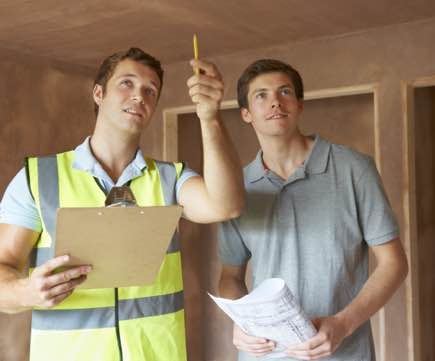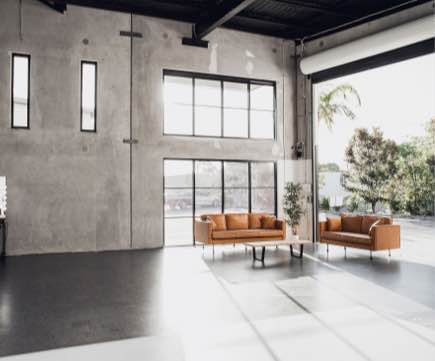Buying a new property is an exciting endeavor, but it’s crucial to ensure that the building is in good condition before making such a significant investment. That’s where building inspections come into play. Conducting a thorough inspection can help you identify potential issues and make informed decisions. However, many individuals unknowingly fall into common pitfalls during the inspection process, leading to costly mistakes down the line. In this article, we’ll explore the most common building inspection mistakes and provide valuable tips on how to avoid them.
1. Neglecting to Hire a Professional Inspector
Before delving into the specific mistakes, it’s essential to emphasize the importance of hiring a qualified and experienced professional for the inspection. While some may attempt a DIY approach, the intricate nature of building inspections requires specialized knowledge and expertise. Professional building inspectors have a trained eye and are well-versed in building codes, regulations, and common issues. By enlisting their services, you can ensure a comprehensive assessment of the property, mitigating potential risks and oversights.
2. Skipping Pre-Inspection Research
Doing some pre-inspection research can go a long way in preparing yourself for the process. Familiarize yourself with the property’s history, including any renovations or repairs that have taken place. Review local building codes and regulations to understand the requirements that the property should meet. This preliminary knowledge will enable you to ask relevant questions and ensure that the inspector thoroughly examines areas that might be prone to issues.
3. Overlooking the Roof
The roof is often out of sight, out of mind, but neglecting to inspect it thoroughly can lead to significant problems later on. Check for signs of damage, such as missing or broken shingles, leaks, or sagging areas. Pay attention to the roof’s age and inquire about any previous repairs or replacements. A professional inspector can provide insights into the roof’s condition, helping you determine if it requires immediate attention or future maintenance.
4. Ignoring Structural Integrity
The structural integrity of a building is paramount to its safety and longevity. One of the most common inspection mistakes is failing to assess the structural elements adequately. Look for signs of cracks, uneven floors, or leaning walls, as these may indicate underlying structural issues. It’s advisable to hire a structural engineer if any concerns arise during the inspection. Their expertise can shed light on potential problems and guide you toward suitable solutions.
5. Disregarding Electrical Systems
Electrical systems are a vital component of any building, and overlooking their inspection can lead to safety hazards or costly repairs. Ensure that the inspector examines the electrical panels, wiring, outlets, and switches. Check for outdated or faulty components that may pose a fire risk. If the property has an older electrical system, consider consulting an electrician for a more in-depth evaluation.
6. Neglecting Plumbing Assessment
Plumbing issues can quickly turn into a nightmare if left undetected. During the inspection, pay close attention to the plumbing system, including water supply lines, drainage, and fixtures. Look for signs of leaks, water stains, or slow drainage. Additionally, inquire about the age of the water heater and its maintenance history. A thorough plumbing assessment can help you avoid unexpected water damage and costly repairs.
7. Forgetting about HVAC Systems
Heating, ventilation, and air conditioning (HVAC) systems play a crucial role in maintaining comfort and air quality within a property. It’s a common mistake to overlook their inspection, especially when they appear to be in good working order. Have the HVAC systems checked thoroughly to ensure they are functioning optimally. Inquire about maintenance records, filter replacements, and the system’s age. Regular maintenance can prevent future breakdowns and improve energy efficiency.
8. Neglecting Moisture and Mold Assessment
Moisture-related issues, such as mold growth, can significantly impact a building’s structural integrity and pose health risks. Don’t overlook the importance of assessing moisture levels and looking for signs of mold during the inspection. Pay attention to musty odors, water stains, or peeling paint, as these may indicate a moisture problem. If mold is suspected, consult with a professional mold inspector to evaluate the extent of the issue and recommend appropriate remediation measures.
9. Overlooking Pest Infestations
Pest infestations can cause extensive damage to a property, compromising its structural integrity and creating health hazards. Termites, rodents, and other pests are often difficult to spot during a casual inspection. Consider hiring a pest control specialist to conduct a thorough examination. They can identify any existing infestations, assess the damage, and recommend appropriate treatment options. Being proactive in addressing pest issues can save you from future headaches and expenses.
10. Not Reviewing Inspection Reports Thoroughly
Once the inspection is complete, you’ll receive a detailed report outlining the inspector’s findings and recommendations. Many individuals make the mistake of not reviewing these reports thoroughly or seeking clarification when needed. Take the time to read the report carefully, paying attention to any red flags or areas that require further investigation. Don’t hesitate to reach out to the inspector for clarifications or additional information. A clear understanding of the report will empower you to make well-informed decisions about the property.
Frequently Asked Questions (FAQs)
Q1: Can I perform a building inspection myself?
A1: While it’s possible to conduct a building inspection yourself, it’s highly recommended to hire a professional inspector. They possess the necessary expertise to identify potential issues that may go unnoticed by an untrained eye.
Q2: How long does a building inspection typically take?
A2: The duration of a building inspection depends on the property’s size, complexity, and condition. On average, it can take anywhere from two to four hours. However, larger or older properties may require more time for a comprehensive assessment.
Q3: Are there any specific certifications or qualifications I should look for in a building inspector?
A3: When hiring a building inspector, look for certifications or memberships in recognized professional organizations such as the International Association of Certified Home Inspectors (InterNACHI) or the American Society of Home Inspectors (ASHI). These credentials ensure a higher level of professionalism and expertise.
Q4: Should I be present during the inspection?
A4: It’s advisable to be present during the inspection to observe the inspector’s findings firsthand and ask questions. Being present allows you to gain a deeper understanding of the property’s condition and address any concerns immediately.
Q5: Can I negotiate the property price based on the inspection findings?
A5: Absolutely! The inspection report can serve as a valuable negotiation tool. If significant issues are identified, you can request repairs or a price reduction based on the estimated cost of addressing those issues.
Q6: What should I do if the inspection reveals major problems?
A6: If the inspection reveals major issues that exceed your comfort level or budget, you have the option to renegotiate the purchase terms, request repairs, or even withdraw your offer altogether. The inspection provides you with the necessary information to make an informed decision.
Conclusion
Building inspections are a crucial step in the property buying process. By avoiding the most common inspection mistakes discussed in this article, you can ensure a more thorough assessment of the property and make informed decisions. Remember to hire a professional inspector, conduct pre-inspection research, and pay close attention to critical areas such as the roof, structure, electrical and plumbing systems, HVAC, moisture levels, and pests. Carefully review the inspection report and seek clarification when needed. With these tips in mind, you’ll be well-equipped to navigate the building inspection process confidently.
Call us on 0409 693 974 during business hours, Monday to Friday from 8:30am to 5:00pm to speak to Robert.
Request an obligation free quote 24/7 via our Free Quote Form




